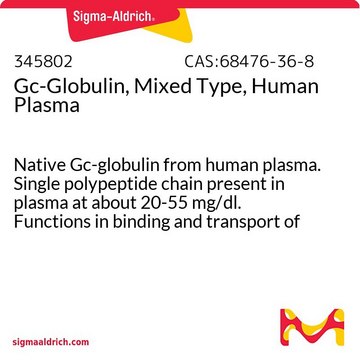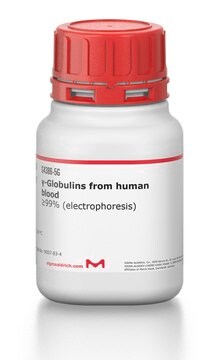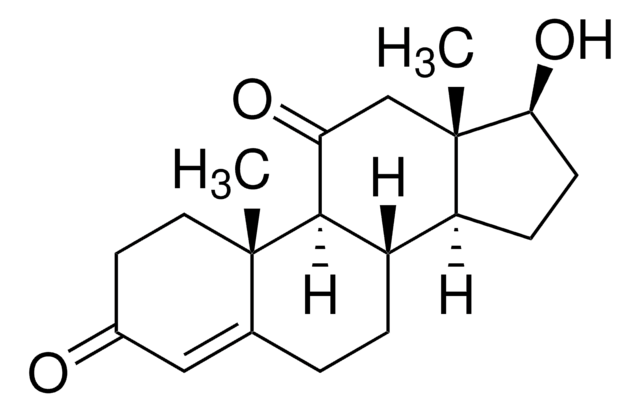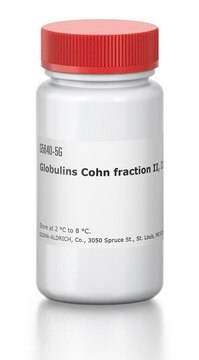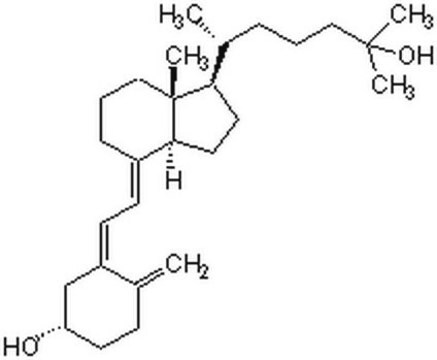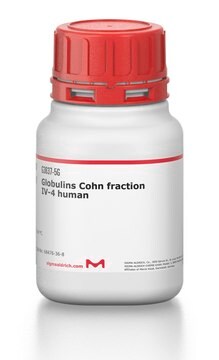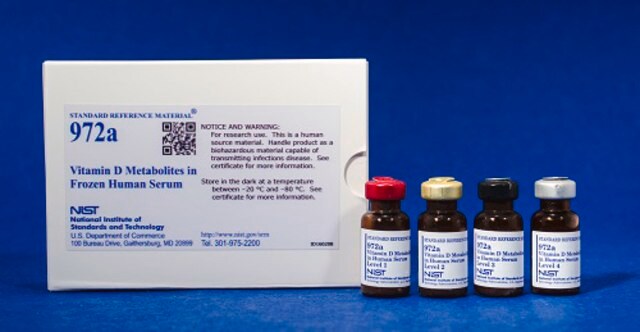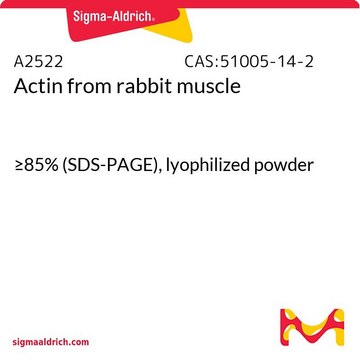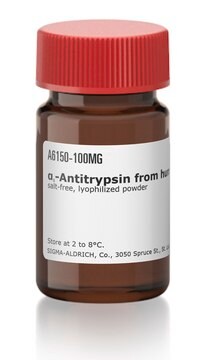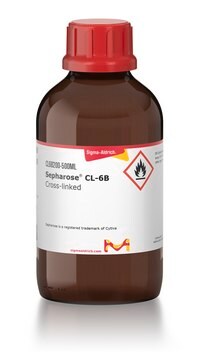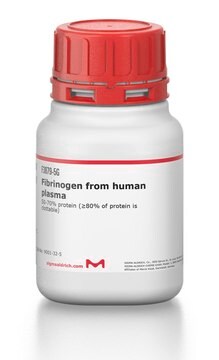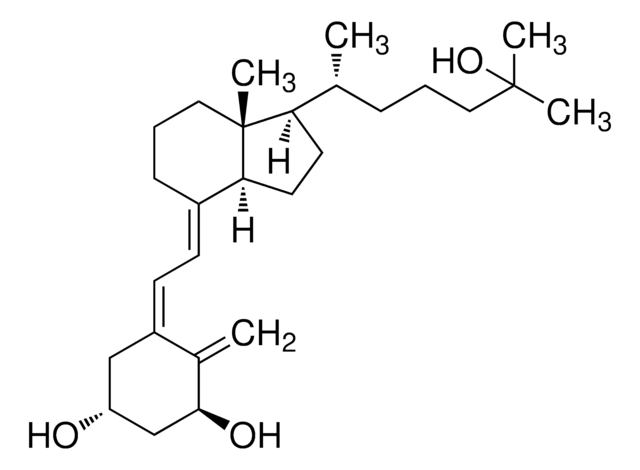G8764
Gc-globulin from human plasma
≥90% (SDS-PAGE), lyophilized powder (containing sodium chloride and sodium phosphate buffer salt)
Sinónimos:
DBP, Group-Specific Component, Vitamin D Binding Protein
About This Item
Productos recomendados
origen biológico
human plasma
Nivel de calidad
Análisis
≥90% (SDS-PAGE)
formulario
lyophilized powder (containing sodium chloride and sodium phosphate buffer salt)
mol peso
~52 kDa
técnicas
LC/MS: suitable
solubilidad
H2O: soluble 2 mg/mL
Nº de acceso UniProt
temp. de almacenamiento
−20°C
Información sobre el gen
human ... GC(2638)
Descripción general
Aplicación
- as a fluorescent probe for G-actin staining
- as a fluorescent probe to monitor steady-state rate of actin filament disassembly
- as a calibrator for liquid chromatography with mass spectrometry (LC-MS/MS)
Acciones bioquímicas o fisiológicas
Nota de preparación
Cláusula de descargo de responsabilidad
Código de clase de almacenamiento
11 - Combustible Solids
Clase de riesgo para el agua (WGK)
WGK 3
Punto de inflamabilidad (°F)
Not applicable
Punto de inflamabilidad (°C)
Not applicable
Certificados de análisis (COA)
Busque Certificados de análisis (COA) introduciendo el número de lote del producto. Los números de lote se encuentran en la etiqueta del producto después de las palabras «Lot» o «Batch»
¿Ya tiene este producto?
Encuentre la documentación para los productos que ha comprado recientemente en la Biblioteca de documentos.
Los clientes también vieron
Nuestro equipo de científicos tiene experiencia en todas las áreas de investigación: Ciencias de la vida, Ciencia de los materiales, Síntesis química, Cromatografía, Analítica y muchas otras.
Póngase en contacto con el Servicio técnico